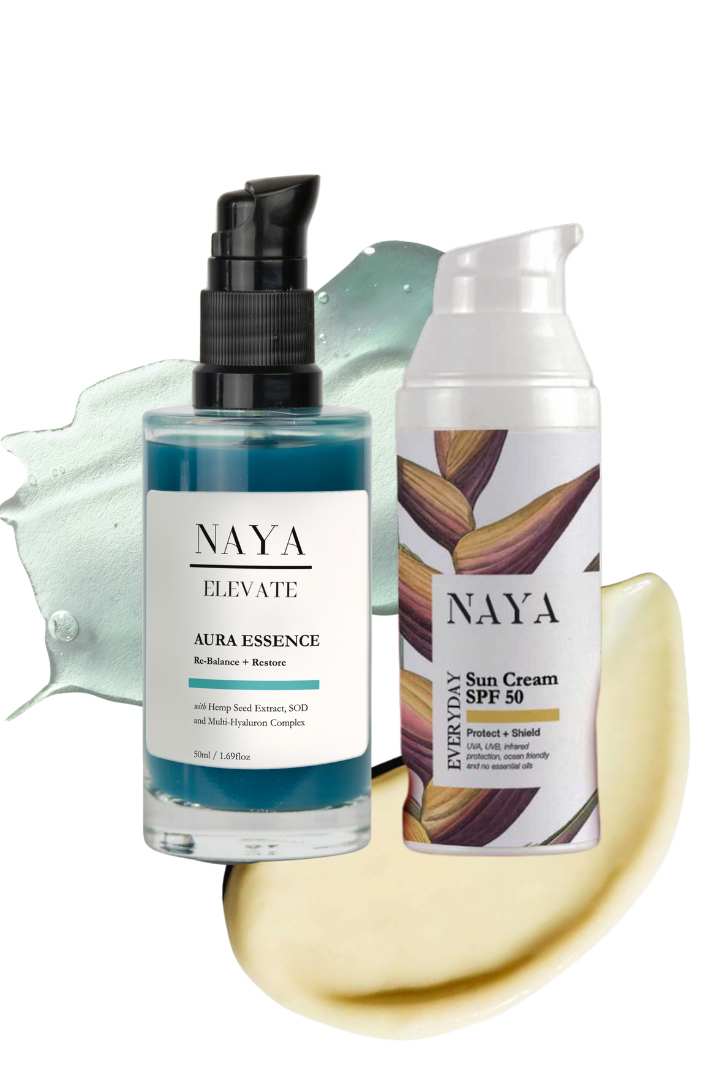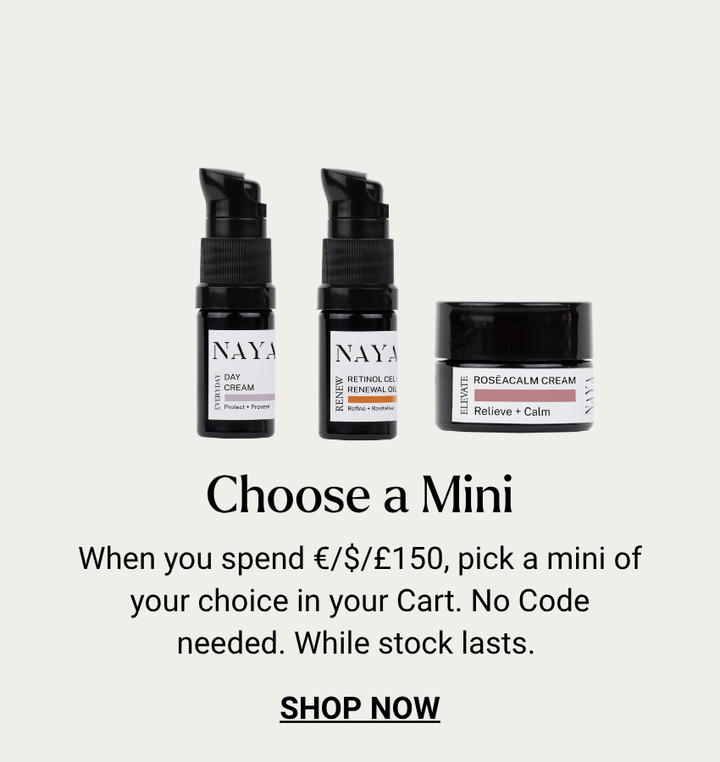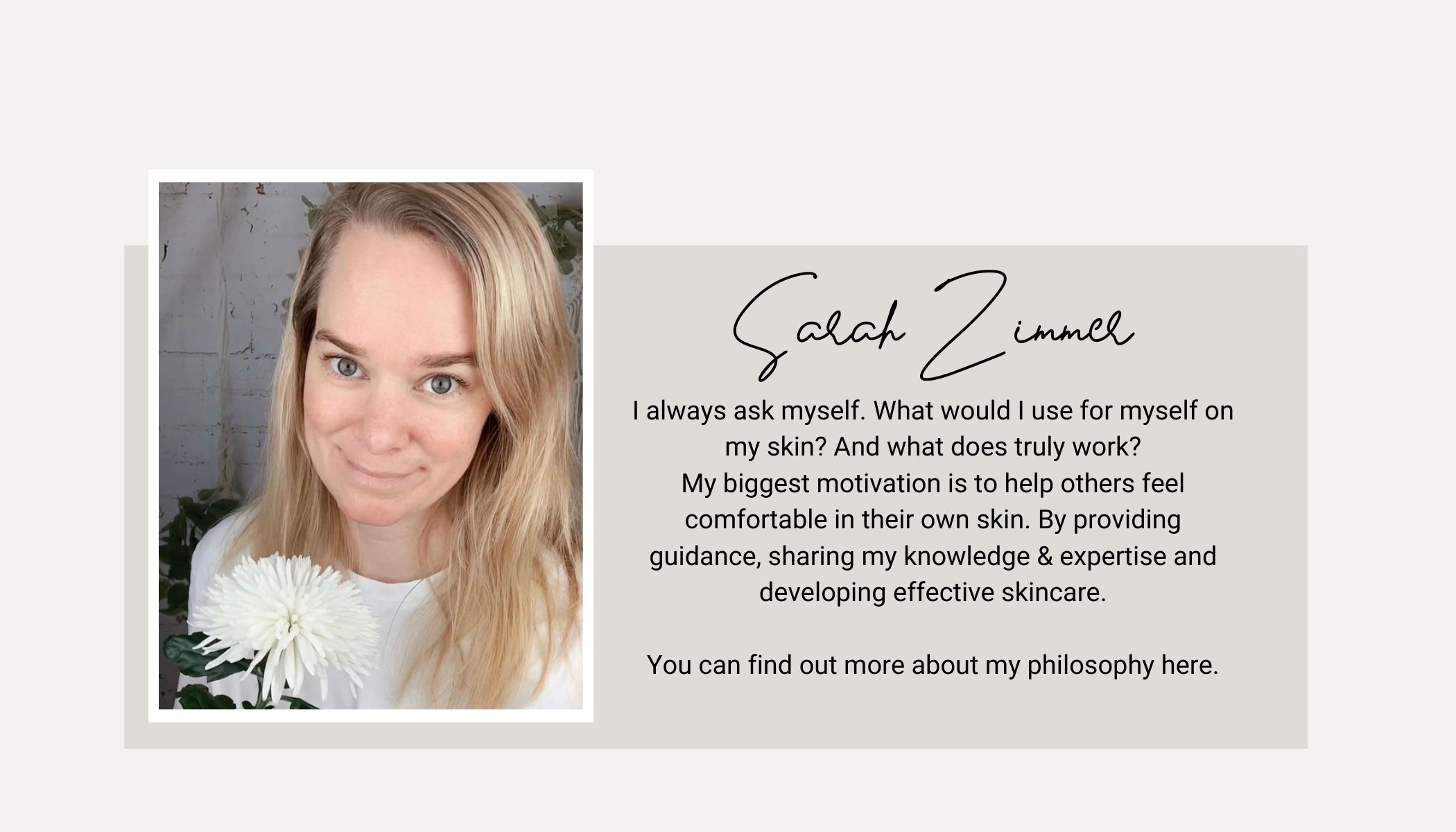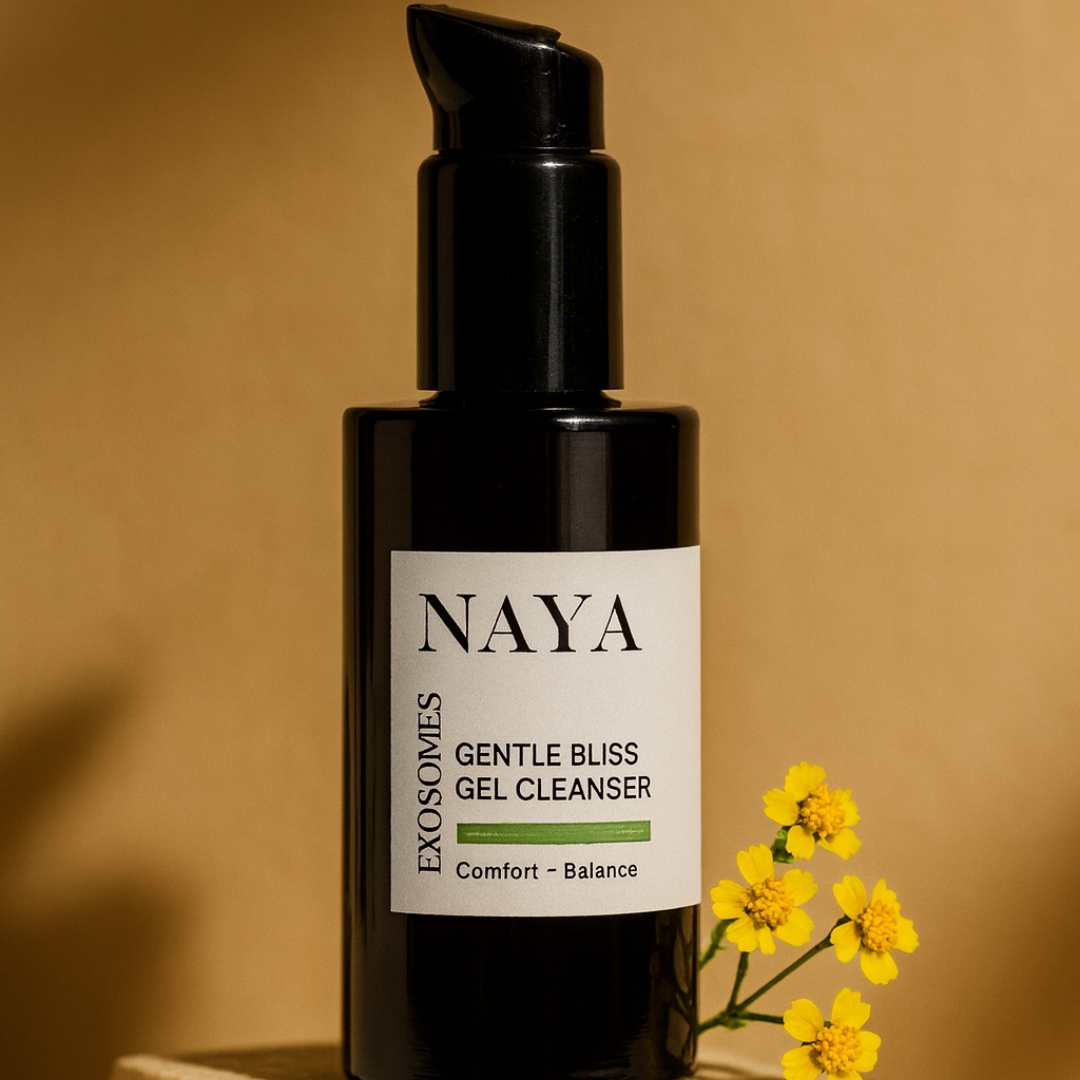4 Recommendations to glowy skin during the Winter
A WINTER SKINCARE ROUTINE SHOULD INCLUDE…
As magical as this time of year can be, the effects on our skin are far from festive. Dry skin, chapped lips, irritation and redness will keep us busy. We’ve got an array of wonderfully supportive and nourishing products to protect your skin through these tough few months. And we will be guiding you on what a winter skincare routine should include. But before we get stuck in, let’s take a look at what happens to our skin during winter and why it’s in need of that extra love.
WHAT HAPPENS TO SKIN DURING WINTER?
As we adjust to darker days and chilly weather, our skin also responds to the changes of a new season. The cold temperatures of winter mean much less moisture is retained in the air and so humidity levels drop. This means we are exposed to much dryer air during winter which has a stripping and drying effect on our skin. Cold winds also play their part in enhancing dryness through encouraging trans epidermal evaporation. The addition of harsh central heating and much more time spent indoors means all-in-all our skin takes a real hydration-hit. Which is why we’re here to help you understand what a winter skincare routine should include!
Temperatur fluctuations ain't our friend
Another phenomenon taking hold of our skin in winter is the fluctuation in temperature between indoors and outdoors. As we hurry home out of the cold and into the warmth, the tiny vascular network within our skin dilates. These frequent changes in climate and temperature can result in flare-ups of chronic inflammatory conditions such as rosacea, psoriasis and eczema. Exposure to cold, dry air can also further irritate those suffering with chronic inflammatory conditions or those with extra sensitive skins. This is because the skin’s barrier is irritated and dried-out by the cold and break-outs, flare-ups and redness are exacerbated.
Looking on the sunny side, the drying and irritating effects of winter can be preventable. A few simple steps in upping your hydration game and offering your skin the restorative, wrap-around care it deserves means winter skin problems can be a real thing of the past. Let’s take a look at our 4 recommendations for the winter skincare essentials your skin just can’t do without.
A WINTER SKINCARE ROUTINE SHOULD INCLUDE: A NON-STRIPPING CLEANSER
Cleansing is one of the most important pieces of the puzzle when it comes to supporting your skin during winter. Even those with generally balanced skin feel the increased sensitivity and dryness during the colder months. Using the wrong cleanser will actually do our skin more harm than good.
Many cleansers contain sulphates which are foaming (soaping) agents found in body, hair and face washes. The problem with sulphates is they not only wash away the bad bacteria and oil we want to cleanse away, but strip the skin’s natural oil and moisture barrier too. This leaves skin parched, sensitive and more prone to irritation. The skin is then more permeable and therefore vulnerable to trans epidermal evaporation. Losing the natural bacteria that create our skin microbiome also means our skin is more prone to invasion from bad bacteria. Our skin is less resilient, prone to more break-outs, and overall unbalanced and very unhappy.
Another stripping agent to look out for and avoid in your cleanser is alcohol. Alcohol is used in skincare to create a cooling and refreshing sensation and provides a weightless finish. Often used in products targeting those with oily skins, alcohol also damages the skin’s natural barrier. Over time, alcohol actually enlarges pores and increases oil production, making oily skin worse.
In winter when our skin is extra dry and sensitive, it’s even more important to prioritise choosing a naturally nourishing cleanser that works in symbiosis with the skin.
How to spot sulphates on a label: Sodium Lauryl Sulfate (SLS) and Sodium Laureth Sulfate (SLES)
How to spot alcohol on a label: Ethyl or Ethanol, Denat, Isopropyl and Methanol or simply Alcohol
Everyday Cleansing OilAvailable as 100ml and 30ml
Our Everyday Cleansing Oil was designed with the most super-sensitive and oily of skins in mind, although it beautifully compliments all skin types. Containing the purest, ethically sourced, organic ingredients, the Everyday Cleansing Oil removes impurities and offers gentle care to remove any grime without irritation or stripping. It supports the skin’s natural barrier by delivering concentrated botanicals, ideal for soothing chapped and dry winter skin. It offers wrap-around-winter-care for all skin types.
A WINTER SKINCARE ROUTINE SHOULD INCLUDE: HUMECTANTS
Humectants are ingredients found in cleansers, serums and moisturisers that attract and hold water molecules. Humectants work by drawing water molecules from deep layers within the skin to the surface, also known as the epidermis. This process promotes optimum hydration of the skin and ensures the surface is plumped and moisturised. Humectants also encourage a process called desquamation, which means cellular proteins are broken down quicker. This process stimulates the shedding of dead cells on the skin’s surface and increases your skin cell turnover. Increased cell turnover equals a glowing, fresh and radiant complexion that’s brimming with healthy new skin cells.
Humectants can be synthetically synthesised but there are also plenty of popular natural humectants. These include hyaluronic acid, which is now regarded as a staple skincare ingredient. Hyaluronic acid absorbs water and increases skin hydration whilst also reducing inflammation and encouraging cellular repair. Our unique complex infused in our Hydration Mask and Aura Hydration Essence increases natural hyaluronic acid synthesis by 150%!
Examples of other natural humectants include glycerine and aloe vera. Introducing a humectant serum into your routine not only draws in moisture fast, but will also benefit your skin long-term and increase your skin’s moisture retention capacity. Humectant serums are great for use around the eyes where the skin is delicate and not able to produce oil.
Aura Hydration EssenceAvailable as 50ml
Our Aura Hydration Essence contains the natural humectants of aloe vera and vegan multi-hyaluronic complex. This serum has a gel-like texture and transforms dried-out, tired and thirsty winter skin. Omega and anti-oxidant rich extracts reduce oxidative stress, restore balance, and provide naturally hydrating support. It is infused with a powerful and patented Hemp Seed Extract to balance the stressed microbiome on your skin as well as Superoxide Dismutase to fight free radicals and prevent premature ageing.
A WINTER SKINCARE ROUTINE SHOULD INCLUDE: EMOLLIENTS AND OCCLUSIVES
That final flourish of TLC during our winter skincare routine should come in the form of emollients and occlusives. Emollients hydrate chapped and dry winter skins by repairing damage to the skin’s surface. They are of a richer consistency than humectants and their fatty and rich texture provides lubrication and softening. Emollients tend to leave a fine film of nourishing protection on the skin and are wonderful for treating itchiness, scaling or flaking. Emollients are saviours for those who are eczema-prone, and also help reduce the appearance of fine lines and wrinkles. Examples of natural emollients include dreamy butters and oils, such as jojoba, coconut, and almond.
Occlusives are ingredients forming a protective seal over the surface of the skin and ensuring hydrating goodness is locked in. They aren’t able to actively increase hydration levels, but instead provide a nourishing and preventative barrier to the skin’s surface. Occlusives prevent trans epidermal water loss and external irritants, bacteria and particles from penetrating the skin’s barrier.
Natural occlusives come in the form of a variety of plant oils, beeswax, and vegetable oils. For those with oilier skins, these types of heavier, occlusive products may best be avoided. Yet during winter, even oily skins can benefit from intensive moisturisers and heavier oil and wax-based products can be suitable. Occlusive balms are ideal for providing a barrier for chapped lips against the harsh elements, sealing in hydration and preventing further cracking. Deeply hydrating oils and overnight masks provide the ultimate concoction of emollients and occlusives. Utter perfection for winter skin.
Everyday Face OilAvailable as 30ml and 10ml
This facial oil is super-rich and yet totally non-greasy...
Available as 30ml and 10ml
This facial oil is super-rich and yet totally non-greasy. It balances hydration levels throughout the day so you can get out there to face the elements! The Everyday Face Oil provides both emollient and occlusive protection through a selection of abundant plant oils, including meadowfoam seed oil, grapeseed oil, almond and, of course cacay oil. All are packed with hydrating fatty acids, balancing anti-oxidants, and restorative vitamins. The Everyday Face Oil seals in moisture and restores dull, irritated or lacklustre winter skin. Result? Dewy, glowing and gorgeous skin.
Available as 50ml
To really tackle that winter chill and arm your skin from within, our Hydration Mask is the ultimate hydrator. This indulgent treatment replenishes and smooths the skin with rich emollients and occlusives, including mango butter, jojoba seed oil and cacay oil. These soothing and hydrating botanicals offer profound resurfacing and nurture and calm irritation. You can also use the Hydration Mask overnight encourage a restful and restorative sleep.

A WINTER SKINCARE ROUTINE SHOULD INCLUDE: SPF
The sun may not be shining but you should always arm your skin with SPF. Rain or shine exposure to UV rays causes a cascade of damage within the skin. This can lead to pigmentation issues, the development of wrinkles, and a loss of collagen leading to sagging. Dermatologists recommend wearing at least SPF30 to ensure your skin tone and texture is protected. Natural sunscreens are always better choices for avoiding the drying ingredients of alcohols and sulphates. These ingredients will dehydrate your skin when it needs hydration the most.
We hope you find this helpful. But if you have any further questions about our products, please feel free to reach out to us.
Disclaimer: If you have a chronic inflammatory skin condition or extra sensitive skin, always follow the advice from your Dermatologist or medical professional.
Please always complete a patch test prior to applying products.
If any of your symptoms get worse, always seek professional advice.













Leave a comment